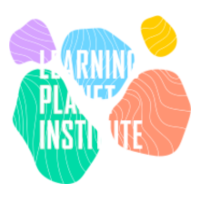
Learning Planet Institute websites
Learning Planet Institute apps
Important information : there will be no new student recruitment for the 2023-2024 year. Thank you for your attention.
FdV Bachelor has chosen an active pedagogy, such as project-based learning (learning by doing) or field experimentation (internships , clubs, associations), because it also aims to make students actors of their learning. This two-level program, theoretical and practical, aims to give students a taste for reflection and innovation, to train them to interact, communicate and work in teams, but above all to give them a great autonomy in their ability to learn and adapt, a guarantee of success in their future studies and/or professional integration.
At the beginning of Year 1, a week of immersion allows students to familiarize themselves with the Bachelor and to get to know the teaching team and the other students. Through a variety of activities, they will learn what is scientific methodology and communication.
An assessment of the learning of the knowledge and skills acquired is carried out in Year 1 and Year 2 during the "transition" and "conclusion" weeks.
Practical work is an important part of the program and mainly takes the form of interdisciplinary experimental projects. Focused on an open-ended question, the production and use of new data, the projects must be an opportunity to explore and not just reproduce expected results.
The projects at the beginning of the Bachelor's degree are relatively supervised, and then the students benefit from increased autonomy. The playful dimension of scientific manipulation and the creativity of the students are valued.
The student benefits from individual and collective follow-up by FdV bachelor's coordination team, allowing him/her to reflect on his/her progress, further studies and professional project.
According to the recommendations of the teachers, the administration team can organize tutoring sessions, provided by students from Year 2, Year 3 students or teachers.
Students are evaluated all along the semester (homework, quizzes, participation), combined with a final exam to summarize the acquired knowledge.
The diverse modes of assessment are adapted to the different skills and knowledge to be assessed. One of the objectives is to empower students, in particular through practices such as self-evaluation and peer evaluation. Teachers are committed to providing each student with regular and constructive feedback on their progress.
During Year 3 (final year), semester 5 is carried out either specialising in Quantitative Biology or in a French or foreign partner institution. Semester 6 is devoted to the completion of a internship. To validate the internship, the student will have to present an internship report and participate in a defense in the presence of his/her tutors and peers.
Students are encouraged to international mobility during this 3rd year.
Meet Ilona !
Meet Yasmine !